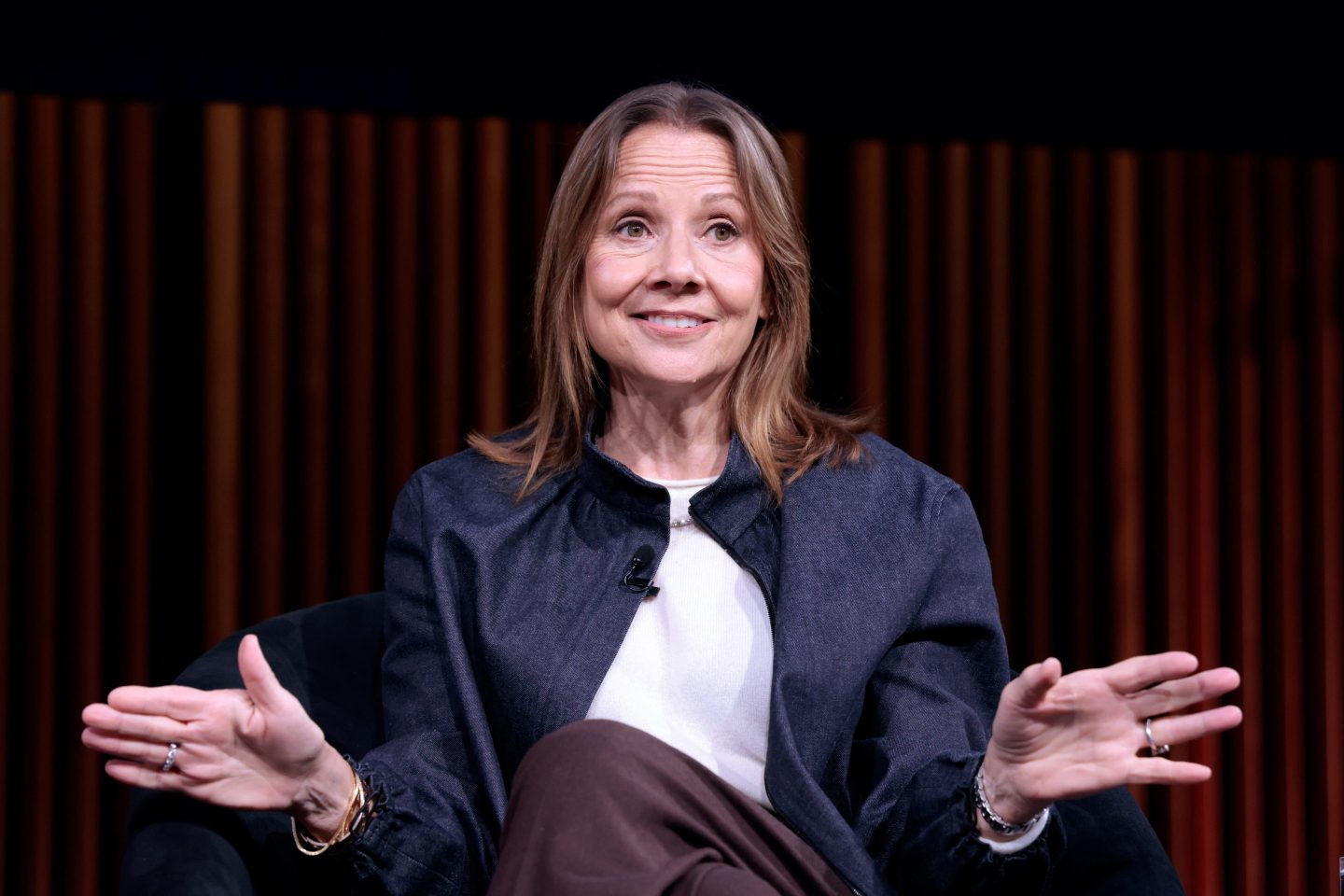Good morning. Many of the world’s largest banks are actively developing and piloting blockchain projects, and JPMorgan Chase has made a big move.
For years, JPMorgan has quietly built its own blockchain technology, opting for a “walled garden” approach by creating a private network accessible only to its customers. But, as my Fortune colleague Ben Weiss reports, JPMorgan is now venturing beyond those walls. On Wednesday, the bank announced it settled a transaction on a public blockchain, partnering with crypto firms Chainlink and Ondo Finance to make it happen.
“In early May, JPMorgan’s blockchain division, Kinexys, transferred money between two accounts on its private blockchain to settle the purchase of tokenized treasuries on Ondo’s public ledger,” Weiss writes. “Tokenized treasuries are money market funds that live on the blockchain. To trigger the payment, JPMorgan used Chainlink, a communication protocol that lets blockchains process outside information.” For the first time, JPMorgan has built out a structure to interface with a public blockchain. “This is not just another POC [proof of concept],” Sergey Nazarov, cofounder of Chainlink, told Weiss. “This is the beginning of something big.” You can read the complete article here.
Under President Trump’s crypto-friendly administration, which is expected to take a lighter regulatory approach, banks recognize the cryptocurrency market is no longer a niche. Lawmakers are now seeking to pass legislation on stablecoins. So-called stablecoins are digital assets like Bitcoin, but are backed by the U.S. dollar, making them akin to a money market fund with check access or a bank account. Bank of America CEO Brian Moynihan recently said in an interview that if stablecoins become legal, “we will go into that business.”
Big banks face competitive pressure from fintechs and crypto-native firms, making engagement with crypto and blockchain a logical step for future relevance and growth. Alesia Haas, CFO at Coinbase, which is one of the largest centralized crypto exchanges in the U.S., recently said that regulatory clarity will “unlock” innovation, banking relationships, and new capital inflows.
Before joining Coinbase, Haas worked in asset management as a CFO and held senior roles at Merrill Lynch and General Electric. I recall a conversation I had with Haas last year, when I asked her what attracted her to Coinbase.
“When I learned about blockchain, I could see that if you tokenize real-world assets, and send value peer to peer, that was going to create a more inclusive, faster, and cheaper financial system,” she said. “And that was such an exciting thing to be a part of.”
Today’s CFOs are expected to lead technological adoption. In the near future, many CFOs may need to become adept at managing crypto assets, leveraging blockchain for operational innovation, and navigating new regulatory environments.
Sheryl Estrada
sheryl.estrada@fortune.com
*****
Upcoming event: Emerging CFO: Agentic AI and the Future of Finance
Join us on June 12 from 11 a.m. to noon ET for our next Emerging CFO webinar. AI agents are transforming the workplace and reshaping the boundaries of innovation, driving a new era of efficiency and providing finance leaders with essential tools to innovate and create value across their organizations. In this session, we’ll explore what CFOs need to know about this technology, the opportunity costs involved, and how to effectively use agentic AI to streamline workflows, improve decision-making, and augment human productivity at scale. Featured speakers include Jamie Miller, chief financial officer and operating officer of PayPal; Matt Castonguay, CFO of Team Car Care; and Silvio Savarese, EVP and chief scientist at Salesforce AI Research.
Fortune, in partnership with Workday, convenes this series to support and inspire emerging CFOs and senior finance leaders. You can find out more information and register here.
Leaderboard
Fortune 500 Power Moves
Scott Herren, EVP and CFO of Cisco (No. 74) has decided to retire after nearly five years with the company, effective July 26. Herren will remain employed by Cisco as an executive advisor through May 1, 2026. Mark Patterson has been promoted to EVP and CFO, effective July 27. Patterson currently serves as EVP and chief strategy officer at Cisco. He joined the networking equipment giant in 2000 and has held several roles of increasing responsibility.
Every Friday morning, the weekly Fortune 500 Power Moves column tracks Fortune 500 company C-suite shifts—see the most recent edition.
More notable moves
Bruce Bower was promoted to CFO of Gorilla Technology Group Inc. (Nasdaq: GRRR), a global provider of software and data processing services, effective June 1. Since joining Gorilla as interim CFO in September 2024, the company has achieved full compliance with the Sarbanes-Oxley Act and resolved previously disclosed material weaknesses, while continuing to secure new partnerships. Bower was previously an emerging markets equities portfolio manager and, earlier in his career, worked at Citigroup.
Benjamin Dorr was promoted from CFO to CEO of WellSaid, an AI voice platform for businesses. Dorr brings over 20 years of executive leadership experience operating and investing in high-growth companies. Before joining WellSaid, Dorr was the chief operating officer of Cordial, an enterprise cross-channel marketing platform.
Big Deal
Morgan Stanley at Work has released its second edition of “Liquidity Trends: Perspectives from Private Company Leaders.” The report finds that, amid economic and market uncertainty, private companies at every stage are increasingly planning for liquidity events. Seventy-six percent of respondents now offer equity compensation plans, up 11% from 2021. And it’s not just reserved for executives, with inclusion rates as high as 69% among large companies. All of the decision-makers agree that equity compensation will play an increased role in attracting and retaining talent over the next five years, according to Morgan Stanley.
Another finding is that, as of January, 45% of private companies reported that the ultimate goal for their business is an initial public offering, up from 13% in 2023. The research was conducted with 150 senior leaders at private companies offering equity compensation plans. All participating companies have raised venture capital and completed a Series B or higher fundraising round.
Going deeper
Wharton’s business journal explores the latest edition of Wharton’s “Consumer Cryptocurrency Confidence Report,” which finds increasing ownership rates and expanding use cases, both online and offline. As the report notes: “When Wharton marketing professor David Reibstein recently spotted a Bitcoin ATM at his local Costco, it struck a chord with his research. A foothold in the discount warehouse retail chain that has some 140 million members is a clear sign of cryptocurrencies gaining mainstream acceptance.”
Overheard
“Throughout my career as a woman in technology, it’s definitely a different experience. You have to always prove yourself, and that’s something I’ve just never shied away from.”
—Nikki Santoro, the new CEO of IMDb, told Fortune in an interview. IMDb, which stands for “Internet Movie Database,” is an online database of information about films, television shows, video games, podcasts, and the people who create them. Santoro previously held leadership roles at Amazon, Microsoft, and The Weather Channel.













